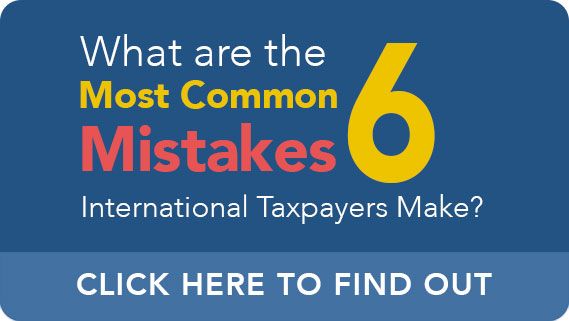Accountant for Real Estate Brokers Dealing with FIRPTA Withholding Requirements
Among the many hurdles imposed on real property transactions in the United States are those created under the Foreign Investment in Real Property Tax Act of 1980, better known as FIRPTA. This piece of legislation was designed to ensure that the United States government receives taxes from foreign entities selling U.S. real estate, which it does through a very simple mechanism: the person buying the property is required to set aside money for the Internal Revenue Service during the transaction.
Still, FIRPTA is as complicated as any tax law on the books, with a whole host of conditions, exceptions, and rules that can easily trip up even experienced real estate brokers. The experts at U.S. Tax Help – founded by certified public accountant Ted Kleinman – have been helping taxpayers and their representatives to navigate the treacherous waters of international tax requirements for more than 30 years. We can help you ensure that you have all your bases covered so you can keep the IRS off your back. To set up a consultation with a knowledgeable accountant, call us today at (541) 923-0903.
Foreign Investment in Real Property Tax Act of 1980
Because it only applies in very specific circumstances, many taxpayers and brokers are likely unfamiliar with the details of FIRPTA, though the conditions to trigger its involvement are fairly straightforward. Simply put, any time a foreign person or business entity sells real property interests in the United States, the buyer must withhold a certain amount for the IRS.
This law makes sense, when you think about it: Because the IRS little legal power over foreign citizens, it would be difficult to compel those people to pay taxes on the sale of a U.S. property. By forcing the buyer to set the funds aside, rather than the seller, the government can ensure that it gets a share of the revenue without the complications that would arise from setting requirements on non-Americans.
Generally, the amount that must be set aside is 15 percent of the gross sale. The buyer of the property, or their representative, has the responsibility to find out whether the seller is a foreign person, and to take appropriate action. If the seller is American, an affidavit is required stating that fact; if they are foreign, FIRPTA takes effect.
It is important to note that this law extends beyond the sale of land or buildings, though; it also affects any liquidation, redemption, transfer, or gift of any interest in real property, including an interest in a well, mine, or any natural deposit. It can also extend to personal property, such as farming equipment, that is used in conjunction with real property.
Residency Exception for FIRPTA Withholding Requirements
While the 15 percent withholding requirement applies in the vast majority of situations where FIRPTA takes effect, there are a few common exceptions that can save time, money, and stress for brokers involved in transactions with international parties. Probably the most useful exception is the one pertaining to the sale of a primary residence.
If you are purchasing a home on behalf of an American and the seller is a foreign entity, you may be able to avoid dealing with FIRPTA altogether. There is a price threshold that must be met for this to happen, however: If the total cost of the residence involved is less than $300,000, there is no withholding requirement on the sale whatsoever, though as with almost everything involved in FIRPTA, the process still requires an affidavit clearly stating the price. If the price is greater than $300,000 but less than $1,000,000, you must withhold 10 percent for the IRS instead of the usual 15 percent.
One other noteworthy qualifier is the clear definition of a “residence” laid out in the law. For a property to qualify as a residence, it must be put to personal use by the buyer or a member of their family for at least 50 percent of the time in the two years following the purchase. Remember, his exception only applies when the buyer is an individual, not a business.
Corporate Applications for FIRPTA Withholding Requirements
Although the rules for individuals and their agents are relatively clear, things get a bit murky when corporations are involved. Special rules exist when a foreign corporation distributes U.S. real property interest to its shareholders – a situation that calls for a 35 percent tax, under the law – though the law is more lenient toward domestic corporations distributing to foreign shareholders. An experienced accountant can further explain the intricacies of these situations.
Contact a CPA Specializing in Foreign Transactions to Meet FIRPTA Withholding Requirements
As with all aspects of U.S. tax law, the requirements defined by FIRPTA are convoluted, to say the least. That’s why you should turn to the expertise of a certified public accountant with a distinguished record of helping taxpayers deal with IRS codes as they relate to foreign entities and transactions. Ten Kleinman has worked for more than three decades dealing with these laws, and he stands ready to help you today. Contact U.S. Tax Help at (541) 923-0903 to learn more.
